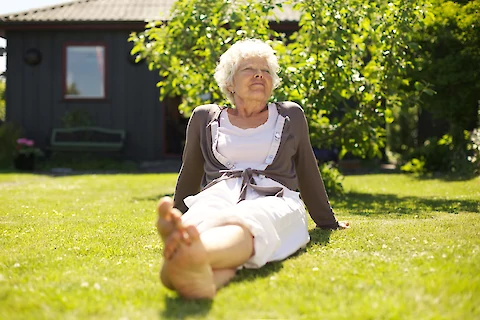
Vitamin D is a nutrient often referred to as the "sunshine vitamin" due to its natural production in our bodies when we are exposed to sunlight. But what happens when we don't get enough sunlight, particularly as we age?
Senior Helpers Asheville will delve into the significance of Vitamin D, explore how deficiencies can occur, and discuss the role of supplements in managing Vitamin D levels. We'll also share expert opinions and guidelines for safe supplementation.
What Is Vitamin D?
Vitamin D is a unique nutrient that serves multiple functions in the body, including aiding in maintaining healthy bones and teeth by helping the body absorb calcium. It also supports the immune system, brain, and nervous system. For seniors, an adequate Vitamin D level is especially critical as it can reduce the risk of certain diseases such as osteoporosis and cardiovascular diseases.
Vitamin D can be obtained through sunlight exposure, diet, and supplements. However, as our ability to produce Vitamin D naturally tends to decrease with age, seniors often face a higher risk of deficiency.
Vitamin D Deficiency in Seniors
Unfortunately, Vitamin D deficiency is common among seniors. This could be due to reduced dietary intake, decreased sun exposure, or impaired intestinal absorption. This deficiency can lead to various health issues, including bone loss, muscle weakness, and an increased risk of falls and fractures. Symptoms may be subtle, like fatigue and general aches, making it hard to identify.
The Role of Sunlight in Vitamin D Production
Sunlight plays a prime role in the body's production of Vitamin D. When the skin is exposed to sunlight, it synthesizes Vitamin D. However, many seniors often face barriers to adequate sun exposure. These can include living in regions with fewer hours of sunlight, limited mobility, or the use of sun protection due to skin cancer concerns, all of which can lead to lower Vitamin D levels.
The Role of Vitamin D Supplements
Supplements can provide a consistent and reliable source of Vitamin D, regardless of sunlight exposure or dietary intake. But are they necessary for all seniors?
The answer largely depends upon individual circumstances. For seniors with limited sun exposure, inadequate dietary intake, or existing Vitamin D deficiency, supplements might be a good solution. Many health professionals recognize the role of Vitamin D supplementation in ensuring seniors maintain optimal health. Always ask your doctor before starting a new supplement regimen.
Guidelines for Safe Supplementation
The recommended dietary allowance for Vitamin D for adults, including seniors, is 600 to 800 International Units (IU) per day. However, this may vary based on individual health status and should always be guided by a healthcare professional.
While supplementation can be beneficial, it's also important to be aware of potential side effects, such as hypercalcemia (excessive calcium levels in the blood), which can occur from high doses of Vitamin D supplements.
Contact Senior Helpers for Care and Support Services
While sunlight and diet are the primary sources of Vitamin D, many seniors may still struggle with adequate intake, putting them at risk for deficiency. Supplementation, particularly from Vitamin D pills, can be a helpful way to ensure appropriate levels are maintained.
If you live in Asheville, Hendersonville, Arden, or Fletcher, NC, and could use some assistance with senior health care, contact us at Senior Helpers Asheville. Our expert staff is dedicated to providing top-tier care and assistance to help seniors live a comfortable, enriching life.